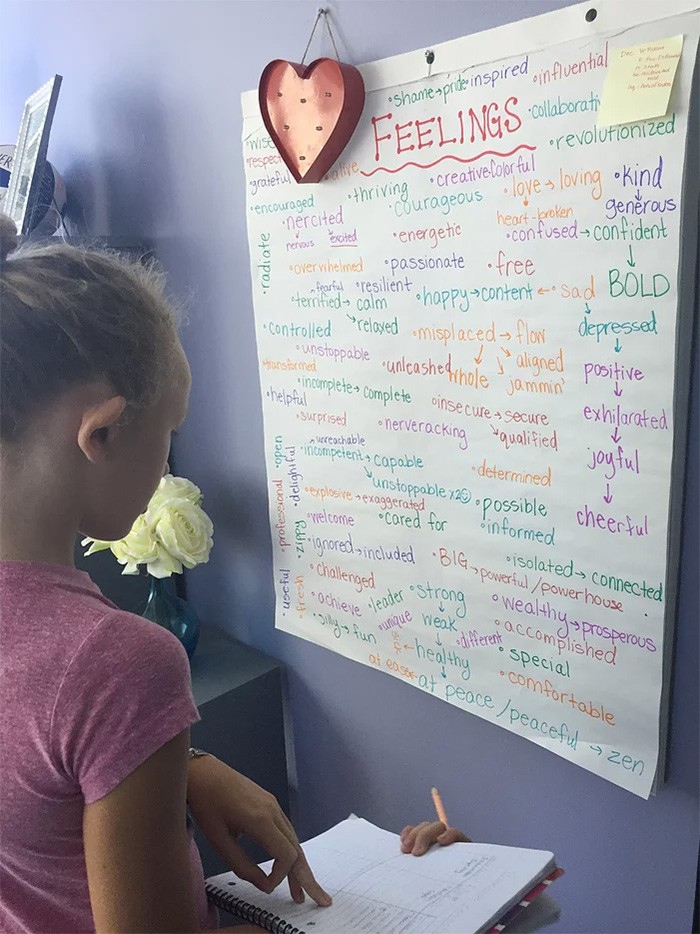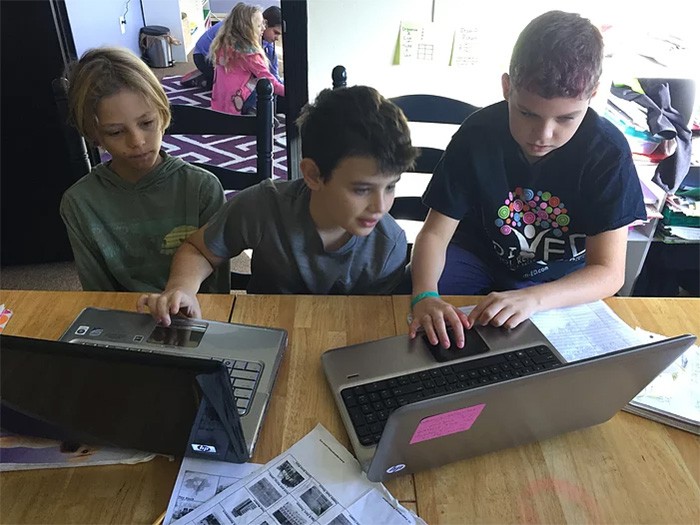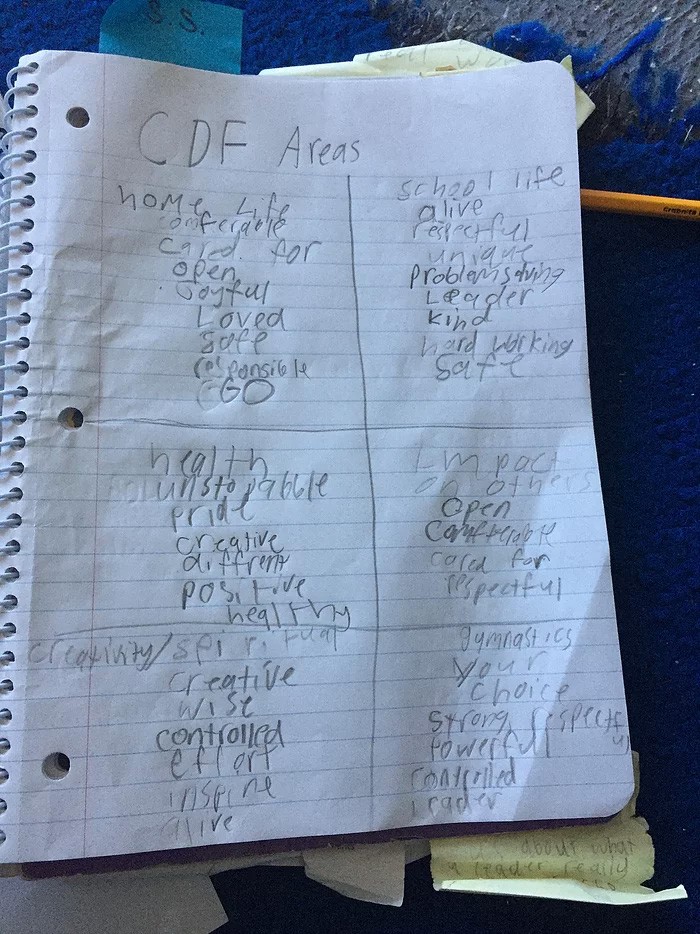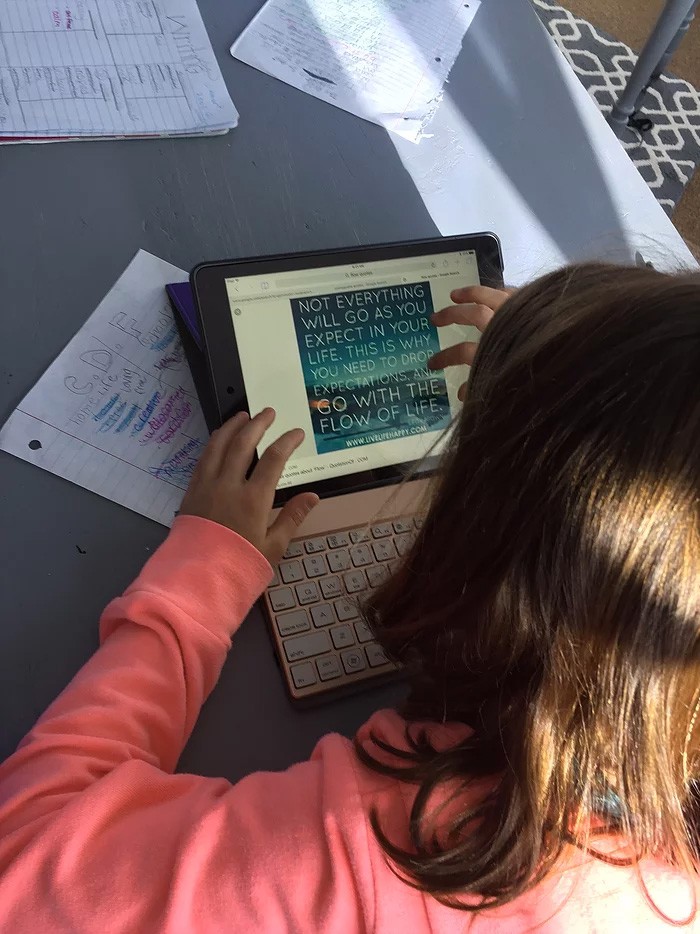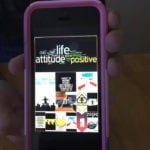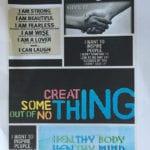It’s that time again…
January tends to bring about a mentality of change or redirection, a good time to check in with ourselves. It also seems to be when families start planning ahead for the next school year which for many, means investigating other options.
I’d like to tie those two ideas together today to give those of you who are just starting the process of deciding if Indi-ED, or any other school for that matter, may be a good fit for your child or not.
If you haven’t already figured it out, we pride ourselves on intentionally doing things differently for the well-being of kids. We pride ourselves on the real life connections we make but also on building our students up as quality students and humans. Here’s the difference, we don’t just say it-we actually act on it.
Take for example, the last two weeks. We intentionally put aside the writing lessons and have spent time focusing on how we want to feel in different areas of our lives. Not a new year’s resolution, but an approach that encourages self-awareness and the understanding that you are in control of your own life.
We discussed how we want to feel in our home lives, school lives, health, spirituality (yes, we are able to discuss because it drives home one of our core values-respecting differences in school and in life), etc.
We had open conversations about our own feelings. We acknowledged each other’s feelings. We spent time looking up these feelings and identifying which was most appropriate for them to want to feel and we encouraged each other to “Go Big!” These conversations led us to list actions we would have to take in order to feel those feelings.
Then they spent time searching for images or quotes that could serve as reminders of those Core Desired Feelings and got creative with their reminders. Some made screen savers on their phones, some wanted to make collages, and everyone printed out their own reminder that they look at and either say to themselves daily. Do you see this type of work consistently in a traditional school? Not likely.
There are many reasons why we think this type of work is just as important as any other content lessons.
1. The most obvious (but often overlooked) is because learning how to become a complete human being is important. Learning how to care for yourself is an important part of that.
2. Another is because they are capable.
If you would have asked my group of 3rd-5th graders if they thought that they’d be able to articulate 100 different feelings, they initially would have said, “No way!” Nonetheless, they hit 50 and then said, “Oh yeah, we can get 100!” (They initiated this challenge on their own-larger lesson about self-directed learning here but we’ll get into that in another post.)
3. Perhaps the most important reason in my opinion, is that when we start having the conversations with each other around feelings and what actions we can take to make ourselves feel the way we want to, we’re teaching them self-awareness and empathy.
We’re building their emotional intelligence which begins planting the seeds necessary to build empathetic responses when they hear or see others struggling or succeeding.
4. What is taught as a result of the prior, is positive independence. Starting to develop the understanding that you are in control of your life, actions and feelings included, is a life lesson that some adults still try to manage.
Which is why we find it so valuable to take the time to teach such lessons to kids. To start getting into the habit of checking in with yourself and then adjusting your actions to constantly improve, is what we believe creates successful students and adults alike.
This is just one example of how we’re constantly reflecting and improving. Feel free to take a look at any of our prior posts and I’m sure you’ll see the theme.
This week was no different. Because it was our halfway point, we spent time looking at their interviews from the first day of school and photos from all of the activities and small moments that we’ve had so far together, then they reflected in writing and in video interviews. (We’ll share some of their responses in the near future.)
They’ll reflect, record, and compare their answers again at the end of the year simply another way that they learn how to monitor themselves.
All of the work we do centers around similar philosophies-doing what’s right for kids. If you’re at a point where you’re looking for change or are investigating options for next year, we’re currently scheduling discovery sessions and would be happy to continue the discussion.


